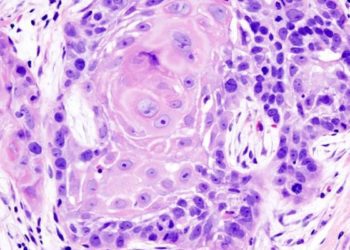Standard cytisine treatment for smoking cessation does not demonstrate noninferiority compared to standard varenicline treatment
1. Among adult daily smokers attempting to quit, cytisine treatment over 25 days failed to demonstrate noninferiority regarding smoking cessation when compared with standard varenicline treatment over 84 days.
2. Cytisine was well tolerated in this trial and had significantly fewer adverse events and cases of treatment discontinuation due to adverse events compared to varenicline.
Evidence Rating Level: 1 (Excellent)
Study Rundown: Varenicline has been established as the most effective monotherapy medication for smoking cessation. Despite this, it is frequently associated with adverse events known to result in early discontinuation of treatment. In recent years, cytisine has emerged as a smoking cessation pharmacotherapy agent that is more effective than placebo and nicotine replacement therapy for smoking cessation. However, cytisine has not been directly compared against varenicline, currently the most effective smoking cessation medication available. This randomized clinical trial sought to assess whether standard cytisine treatment (25 days) was noninferior to standard varenicline treatment (84 days) for smoking cessation. The main outcome and measure of the analysis was 6-month continuous abstinence verified using a carbon monoxide breath test at 7-month follow-up. The noninferiority margin was set at 5% and the 1-sided significance threshold was set at .025. Among 1,452 Australian adult daily smokers willing to attempt quitting, verified 6-month continuous abstinence rates were 11.7% and 13.3% for the cytisine and varenicline groups respectively, a difference that did not meet the noninferiority margin of 5%. These findings suggested that among adult daily smokers willing to quit, cytisine treatment over 25 days, compared with varenicline treatment over 84 days, failed to demonstrate noninferiority regarding smoking cessation. A limitation of this study was the use of minimal behavioral and psychosocial supports as adjuvants to smoking cessation strategies, as participants were only offered a quit line referral. Although telephone counseling has been established as an effective treatment strategy, previous studies have shown low compliance and acceptance of quit line support among Australian smokers.
Click to read the study in JAMA
In-Depth [randomized controlled trial]: This noninferiority, open-label randomized clinical trial enrolled 1,452 Australian adult daily smokers willing to make an attempt to quit (mean [SD] age, 42.9 [12.7] years; 742 [51.1%] women) from November 2017 through May 2019, with follow-up completed in January 2020. In total, 1,108 (76.3%) individuals completed the trial where allocation concealment (cytisine, n = 725; varenicline, n = 727) and blinded outcome assessment was undertaken. Data collection was conducted via computer-assisted telephone interview, but an in-person visit to validate the primary endpoint was also performed. All participants were offered referral to standard telephone behavioral support. Treatments were administered according to the manufacturers’ recommended dosages. For cytisine, 1.5mg capsules taken 6 times daily initially then gradually reduced over the 25-day course. For varenicline, 0.5mg tablets titrated to 1mg twice daily for 84 consecutive days (12 weeks). Overall, verified 6-month continuous abstinence rates were 11.7% and 13.3% for the cytisine and varenicline group respectively (risk difference, -1.62% [1-sided 97.5%CI, -5.02% to ∞]; P = .03 for noninferiority). Among 483 individuals in the cytisine group, 997 self-reported adverse events were recorded compared to 1,206 events among 510 individuals in the varenicline group, with an incident rate ratio of 0.88 overall (95%CI, 0.81 to 0.95; P = .002).
Image: PD
©2021 2 Minute Medicine, Inc. All rights reserved. No works may be reproduced without expressed written consent from 2 Minute Medicine, Inc. Inquire about licensing here. No article should be construed as medical advice and is not intended as such by the authors or by 2 Minute Medicine, Inc.





